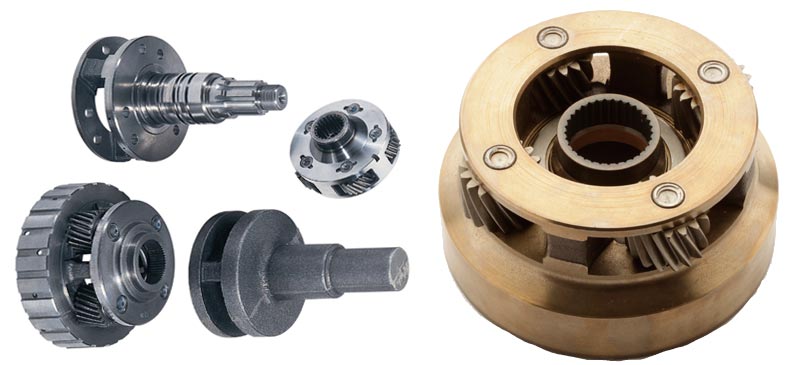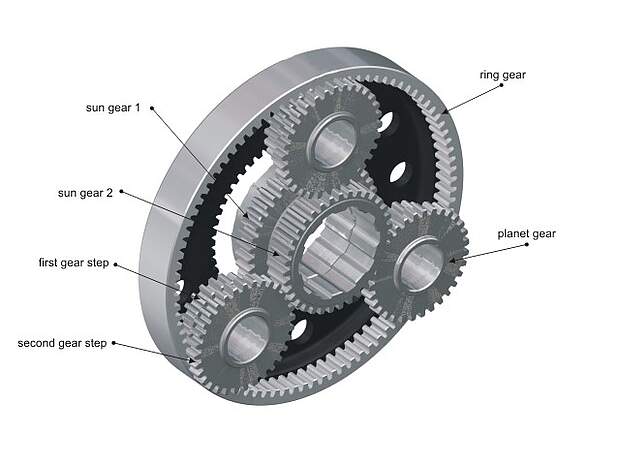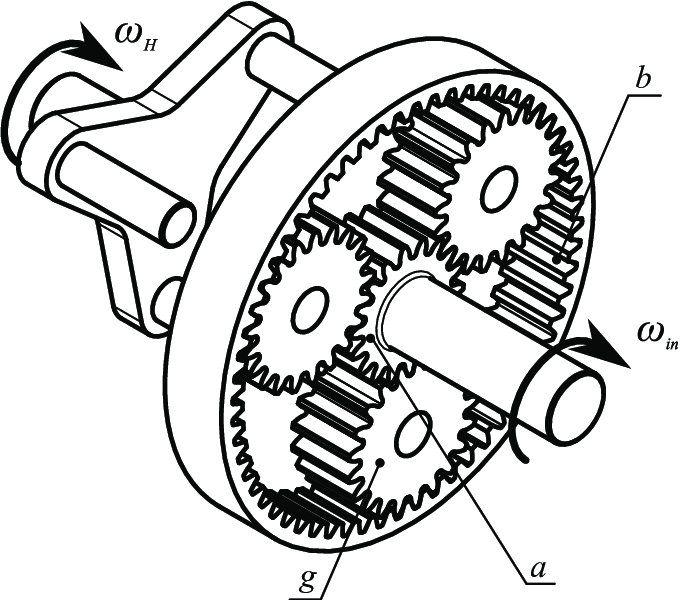Product Description
PLANETX planetary reduce
Disc output reducer is widely used in industrial products due to its small size, light weight, large torque, wide speed ratio range, high rigidity, high precision, high transmission efficiency, maintenance free and other characteristics.
The planetary reducer structure is composed of a sun gear and a planet gear to form an external mesh, and a planet gear and an internal gear ring to form an internal mesh, so that the planet gear can realize revolution while realizing self rotation and maximum transmission of guarantee force; The minimum speed ratio of single-stage reduction is 3, and the maximum speed ratio is generally not more than 10. Common reduction ratios are 3, 4, 5, 6, 7, 8, and 10. The number of reducer stages is generally not more than 3, and the speed ratio is not more than 1.
Most planetary reducers are used with servo motors to reduce speed, increase torque, increase inertia, and ensure return accuracy (the higher the return accuracy, the higher the price). The maximum rated input speed of planetary reducers can reach 12000 rpm (depending on the size of the reducer itself, the larger the reducer, the smaller the rated input speed), and the operating temperature is generally between – 40 ºC and 120ºC.
|
Model |
Unit | PZE060A PZF060A PZK060A |
PZE085A PZF085A PZK085A |
PZE115A PZF115A PZK115A |
PZE140A PZF140A PZF160A PZK140A PZK160A |
Ratios(i) | |
| Stages | |||||||
|
Rated output torque |
Nm |
16.5 | 63 | 155 | 310 | 3 | 1-stages |
| 26 | 90 | 230 | 460 | 4 | |||
| 28 | 100 | 245 | 500 | 5 | |||
| 20 | 68 | 165 | 340 | 7 | |||
| 12.5 | 43 | 95 | 195 | 10 | |||
| 19.5 | 75 | 185 | 370 | 9 | 2-stages |
||
| 31.5 | 110 | 275 | 550 | 12 | |||
| 31.5 | 110 | 275 | 550 | 16 | |||
| 31.5 | 110 | 275 | 550 | 20 | |||
| 33.5 | 120 | 290 | 600 | 25 | |||
| 31.5 | 110 | 275 | 550 | 28 | |||
| 33.5 | 120 | 290 | 600 | 35 | |||
| 31.5 | 110 | 275 | 550 | 40 | |||
| 33.5 | 120 | 290 | 600 | 50 | |||
| 24 | 81 | 195 | 400 | 70 | |||
| 37.5 | 130 | 335 | 665 | 80 | |||
| 37.5 | 130 | 335 | 665 | 100 | 3-stages | ||
| 40 | 145 | 355 | 720 | 125 | |||
| 37.5 | 130 | 335 | 665 | 140 | |||
| 40 | 145 | 355 | 720 | 175 | |||
| 37.5 | 130 | 335 | 665 | 200 | |||
| 40 | 145 | 355 | 720 | 250 | |||
| 37.5 | 130 | 335 | 665 | 280 | |||
| 40 | 145 | 355 | 720 | 350 | |||
| 37.5 | 130 | 335 | 665 | 400 | |||
| 40 | 145 | 355 | 720 | 500 | |||
| 28 | 95 | 230 | 480 | 700 | |||
| 18.8 | 62 | 135 | 280 | 1000 | |||
| Max.output torque |
Nm | 2/2*Nominal torqute | |||||
After Sales Service
FAQ
Our Advantages
| Warranty: | 1 Year |
|---|---|
| Classification: | Gear Parts |
| Processing Type: | Metal Processing |
| Match Machine: | Spinning Equipment |
| Material: | Metal |
| Processing Level: | Precision Finishing |
| Customization: |
Available
| Customized Request |
|---|

How do you calculate the gear ratio involving sun, planet, and ring gears?
The gear ratio in a planetary gear system can be calculated by considering the number of teeth on the sun gear, planet gears, and ring gear. The gear ratio determines the relationship between the input speed and the output speed of the system. Here’s how you can calculate the gear ratio:
- Step 1: Count the Teeth:
Count the number of teeth on the sun gear (S), the planet gears (P), and the ring gear (R). These numbers represent the respective gear’s tooth count.
- Step 2: Determine the Gear Arrangement:
Identify the gear arrangement. In a simple planetary gear system, the sun gear is at the center, surrounded by planet gears, and enclosed by the ring gear.
- Step 3: Calculate the Gear Ratio:
The gear ratio (GR) can be determined using the formula:
GR = (R + P) / S
Where:
- R represents the number of teeth on the ring gear
- P represents the number of teeth on the planet gears (assuming they have the same number of teeth)
- S represents the number of teeth on the sun gear
The resulting gear ratio represents the speed relationship between the input and output of the planetary gear system. A gear ratio greater than 1 indicates a speed reduction, while a gear ratio less than 1 indicates a speed increase.
It’s important to note that in more complex planetary gear systems, where there are multiple sets of planet gears or additional gears, the calculation of the gear ratio may involve considering multiple gear stages and their respective tooth counts.
In summary, to calculate the gear ratio involving sun, planet, and ring gears, you need to count the teeth on each gear and use the formula (R + P) / S, where R is the number of teeth on the ring gear, P is the number of teeth on the planet gears, and S is the number of teeth on the sun gear. This calculation provides the gear ratio that defines the speed relationship between the input and output of the planetary gear system.

What are the considerations for lubrication and maintenance of planetary gears?
Proper lubrication and maintenance are crucial for the reliable and efficient operation of planetary gears. Let’s explore the key considerations for lubrication and maintenance:
- Lubrication:
Effective lubrication is essential to reduce friction, wear, and heat generation in planetary gears. Consider the following aspects:
- Lubricant Selection:
Choose a lubricant specifically designed for gear systems with the appropriate viscosity and additives to ensure proper film formation and protection against wear. Consult the manufacturer’s recommendations or industry standards for suitable lubricants.
- Lubricant Contamination:
Prevent contamination of the lubricant by keeping the gear system clean and free from debris, dust, and moisture. Use proper sealing techniques and consider filtration systems to maintain the lubricant’s cleanliness and performance.
- Lubrication Frequency:
Follow the recommended lubrication intervals provided by the equipment manufacturer. Factors such as operating conditions, load, and temperature can affect the lubrication frequency. Regularly monitor the lubricant condition and conduct oil analysis to determine if lubricant replacement or additional lubrication is required.
- Maintenance:
Regular maintenance helps ensure the longevity and optimal performance of planetary gears. Consider the following maintenance aspects:
- Inspection:
Periodically inspect the gear system for signs of wear, damage, misalignment, or abnormal noise. Detecting issues at an early stage allows for timely maintenance and prevents further damage.
- Alignment:
Proper alignment of the gear components is crucial to distribute the load evenly and prevent premature wear. Regularly check and adjust the gear alignment as per the manufacturer’s specifications.
- Torque and Load:
Ensure that the gear system operates within the recommended torque and load limits. Excessive loads can lead to increased wear and decreased gear life. Consider the application requirements and ensure the gear system is appropriately sized and rated.
- Temperature:
Monitor the operating temperature of the gear system. Excessive heat can degrade the lubricant’s performance and accelerate wear. Proper cooling mechanisms, such as fans or heat exchangers, may be required in high-temperature environments.
In summary, proper lubrication and maintenance are essential for planetary gears. Choose suitable lubricants, prevent contamination, follow recommended lubrication intervals, inspect for wear, ensure proper alignment, consider torque and load limits, monitor operating temperature, and conduct regular maintenance. By adhering to these considerations, you can prolong the lifespan, enhance performance, and minimize the risk of gear failure in planetary gear systems.

How do planetary gears contribute to power transmission and gear reduction?
Planetary gears play a significant role in power transmission and gear reduction. Let’s explore how planetary gears contribute to these aspects:
- Torque Amplification:
One of the key contributions of planetary gears is torque amplification. The arrangement of multiple gear sets in a compact design allows for torque multiplication. When the input power is applied to the sun gear, it drives the rotation of the planet gears. The planet gears, in turn, mesh with the ring gear, creating a mechanical advantage that amplifies the torque output. This torque amplification is beneficial in applications where high torque is required while maintaining a smaller form factor.
- Gear Ratio Variation:
Another contribution of planetary gears is their ability to achieve different gear ratios. By varying the number of teeth on the sun gear, planet gears, and ring gear, a wide range of gear ratios can be obtained. The gear ratio is determined by the relative sizes of the gears and the number of teeth on each gear. This flexibility in gear ratios allows machinery to adapt to varying speed and torque requirements, enabling precise control and efficient power transmission.
- Gear Reduction:
Planetary gears are commonly used for gear reduction applications. Gear reduction refers to the process of reducing the rotational speed and increasing the torque output of a power source. In a planetary gear system, gear reduction is achieved by fixing the ring gear and allowing the sun gear to rotate as the input. The rotation of the sun gear drives the planet gears, which in turn rotate the output carrier or arm. The output speed is slower than the input speed, resulting in gear reduction. This gear reduction capability is valuable in various applications, such as automotive transmissions and power transmission systems.
- Efficient Power Transmission:
Planetary gears are known for their efficient power transmission capabilities. The internal gear meshing and the distribution of load across multiple gear teeth result in efficient torque transfer with minimal power loss. The load is shared among the planet gears, allowing for higher torque capacity and reduced wear on individual gear teeth. This efficient power transmission ensures that a significant portion of the input power is effectively transmitted to the output, making planetary gears suitable for applications where energy conservation and optimization are crucial.
In summary, planetary gears contribute to power transmission and gear reduction through torque amplification, gear ratio variation, gear reduction mechanism, and efficient power transmission. The ability to amplify torque, achieve different gear ratios, and transmit power efficiently makes planetary gears widely used in various industries and mechanical systems.


editor by CX 2023-10-16